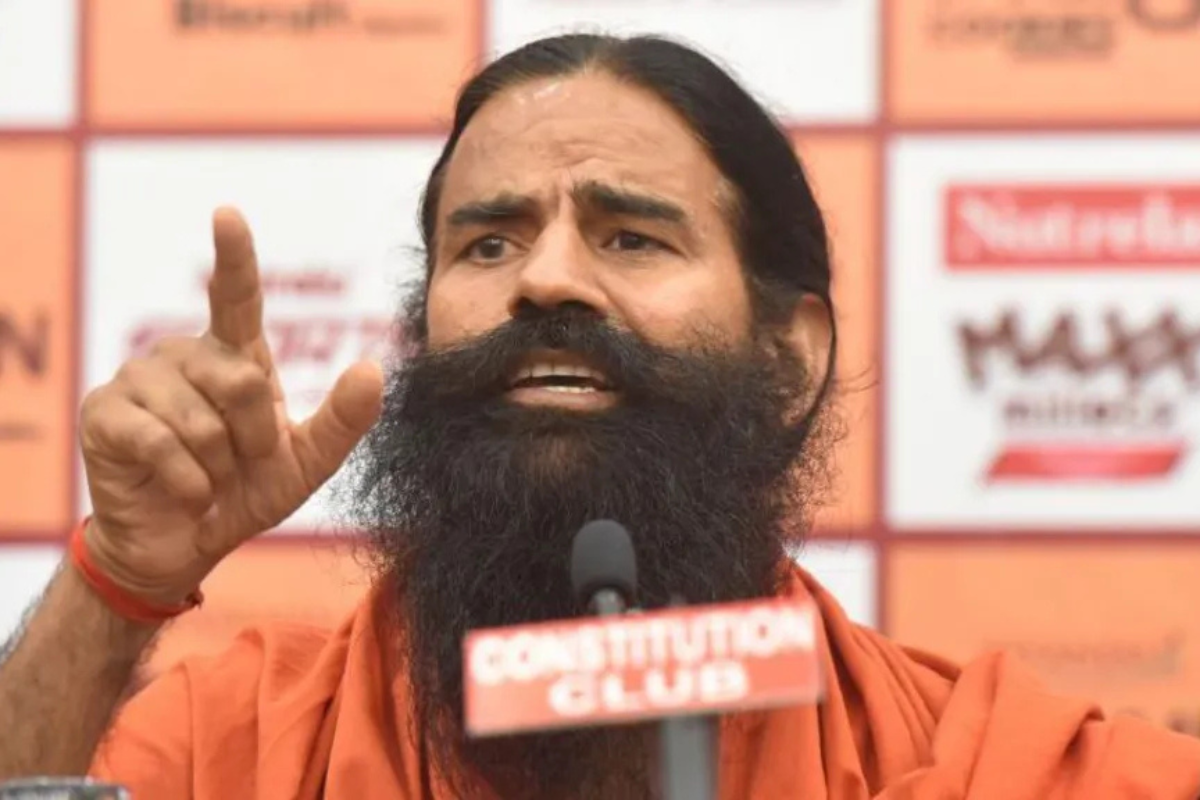Indian Yoga Guru Baba Ramdev Agrees to Withdraw Disputed Advertisements Targeting Competing Beverage
Baba Ramdev, a well-known Indian yoga guru, agreed to withdraw ads that stirred controversy over a rival sweet beverage. Ramdev made these statements in a videotape, which caught the attention of both the media and the public., leading to a legal battle. A Delhi court blamed his commentary, describing them as” unpardonable.”
In this composition, we will dive into the details of Baba Ramdev’s controversial reflections, the legal impacts, the history of the rival drink, and his rise to fame. This article explores all sides of the issue, helping you understand the legal conflict surrounding Ramdev and his statements.
The Contestation Unfolds
Baba Ramdev, known for his yoga training and the heartiness brand Patanjali Ayurveda, stirred up contestation in a recent videotape. The videotape featured Ramdev professing that certain companies used their gains to fund religious conditioning similar as kirks
and madrassas. Ramdev didn’t name the rival drink, but many believed he referred to Rooh Afza, made by Hamdard Laboratories.

Rooh Afza has been a chief in South Asian homes, especially during the holy month of Ramadan. An Islamic charitable association produced the drink, which many people cherish, which added energy to the fire. Ramdev’s comments were viewed as a critique of Hamdard’s business practices and were widely criticized for being inflammatory.
Baba Ramdev :Rooh Afza The Rival Drink
Rooh Afza is a sweet, non-alcoholic beverage. Rooh Afza, created by Hamdard Laboratories in 1906, has been a beloved part of South Asian culture for over a century. Often mixed with milk or water, this refreshing drink is especially popular during the holy month of Ramadan, when many Muslims use it to break their fast.
The drink has gained recognition not only in India but also in Pakistan and Bangladesh. Its long- standing tradition and association with Ramadan make it a artistic symbol. Despite its widespread popularity, Rooh Afza has sparked religious and cultural debates—particularly after Ramdev’s video highlighted its ties to Muslim-owned businesses.
Ramdev’s Remark” Sherbet Jihad”
One of the most controversial aspects of Ramdev’s videotape was his use of the expression” sherbet jihad.” The term” jihad” has long been a contentious word, and its use in this environment only boosted the outrage.” The term “Sherbet jihad” appeared to be a variation of “love jihad,” a phrase used by some radical Hindu groups to accuse Muslim men of attempting to convert Hindu women through marriage.
Ramdev’s comment suggested that Muslim businesses were benefiting from the spending of Hindus, fueling pressures between communities. Many people saw the use of such language as divisive and communal, farther inflaming the situation.
Baba Ramdev :The Delhi Court’s Response
The public and the media quickly noticed the remarks. On Tuesday, a judge in the Delhi High Court, Amit Bansal, blamed Ramdev’s statements, calling them “ unpardonable. ” The judge emphasized that similar commentary could lead to division among different religious groups in India, a country known for its different and pluralistic society.
Judge Amit Bansal of the Delhi High Court ordered Baba Ramdev to submit an affidavit within five days, confirming that he would refrain from making similar statements, declarations, or social media posts going forward. This order highlights the soberness of the situation and the growing enterprises about hate speech and collaborative harmony in India.
The Legal Battle Communal Divide and detest Speech
The controversy escalated when Hamdard Laboratories filed a case… demanding the removal of the offensive advertisements.. Hamdard Laboratories argued that Ramdev crossed the line from product criticism into inciting communal tension, suggesting that they contributed to a collaborative peak.
Hamdard’s lawyer, Mukul Rohatgi, called the remarks “hate speech.” He argued they fueled division in India’s sensitive, multi-religious society.
On the other hand, Rajiv Nayar, representing Ramdev and Patanjali, defended his customer, stating that Ramdev did n’t intend to target any particular religion. Nayar assured the court they would promptly remove the disputed advertisements. However, the damage had already been done.
Baba Ramdev’s Rise to Fame
Baba Ramdev’s trip from a small- city boy to a global yoga sensation is nothing short of inspiring. He first gained public attention in the early 2000s through his televised yoga classes. His training on physical fitness and holistic health reverberated with millions of people across India.
Ramdev’s fame soared as he came a symbol of heartiness and tone- enhancement. His yoga classes reached millions of observers, and his capability to connect with the millions made him one of the most influential numbers in India’s health and fitness geography.
In 2006, Baba Ramdev broadened his reach by partnering with his close associate Acharya Balkrishna to establish Patanjali Ayurveda.The company began with the thing of offering herbal drugs and natural products to help people lead healthier lives. Over time, Patanjali has come one of the largest Ayurvedic product manufacturers in India, with a wide range of immolations from flour to toothpaste and indeed instant polls.
former Legal Issues with Baba Ramdev
Baba Ramdev’s trip has not been without contestation. In 2024, the Indian Supreme Court ordered him to apologize for falsely claiming that Patanjali products could” cure” serious ails. The court also banned the announcements that made these unwarranted claims, ruling that they misled consumers and violated the principles of fair advertising.
This is n’t the first time Baba Ramdev has faced legal action. His bold statements and controversial views have frequently sparked legal battles, drawing attention to his business practices and marketing strategies.




